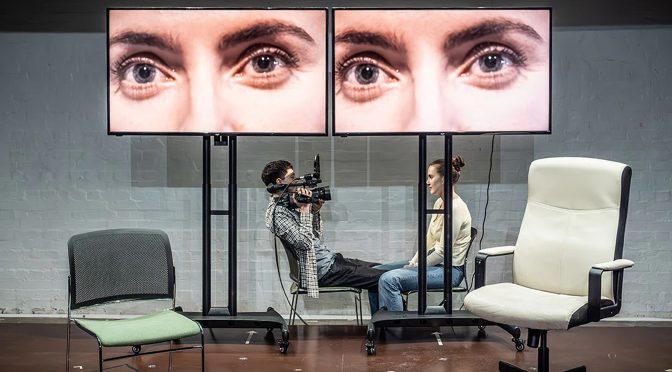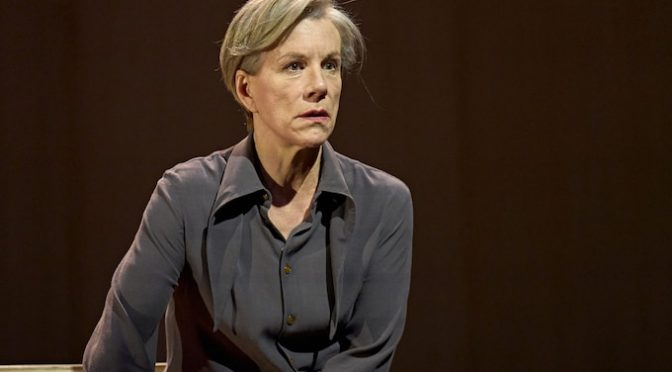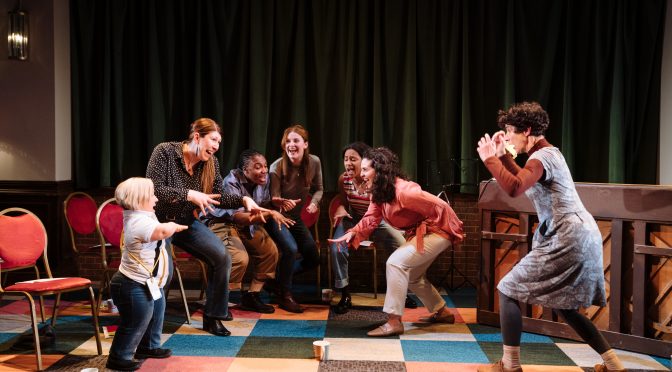A group of medics training to work in a disaster zone guarantees plenty of drama in Sami Ibrahim’s new play. As four characters read out scenarios and role-plays to prepare for a future far away, their pasts, and the here and now, come into focus.
The scenes are super short but director Jaz Woodcock-Stewart still provides time for the audience to think. There are a lot of questions about motives, of course we assume all are well intentioned. And the impact of corruption within the charity they work for could be the subject of a play itself.
As we get to know the quartet, their personal lives are explored in detail. Ibrahim has created great roles. Dan, played by Peter Corboy, is an effective comic character and developed wonderfully. The group facilitator, Nicki, has the chaos under her calm exterior skilfully portrayed by Mariah Louca.
The focus of the play though, is Khaled and Sarah, who start a romance that Luca Kamleh Chapman and Rosa Robson excel at depicting. There’s an age gap between them, as well as differences in race and religion – but none of this is overplayed. Fathers feature big for both, two very different legacies that weigh heavily. But the audience isn’t clear if this is enough to bring them together, or even if Sarah is telling the truth about what happened to her Dad.
The role-plays, and the gap between fiction and reality, are used to great effect with tension mounting terrifically. As the exercises are acted out, the characters’ “improvisation” becoming better – and more aggressive – everything starts to blur. Sarah even gets Khaled’s name wrong at one point. Confusion is deliberate and brilliantly handled by Woodcock-Stewart. Similarly, the TVs that are the main feature of Rosie Elnile’s design: of course it makes sense the trainees are filmed, but the screens come to dominate and cleverly obscure our view.
Multiple Casualty Incident is a play of considerable wit, as well as passion, and intelligence. As well as being funny and sexy, the games it plays with the audience raise important questions about prejudices. Imagining drama used in this very different context reminds us of its raw power. If there’s a flaw here, it’s that Ibrahim doesn’t quite know how to finish the play… then again, I can’t say I wanted it to end.
Until 8 June 2024
Photo by Marc Brenner



